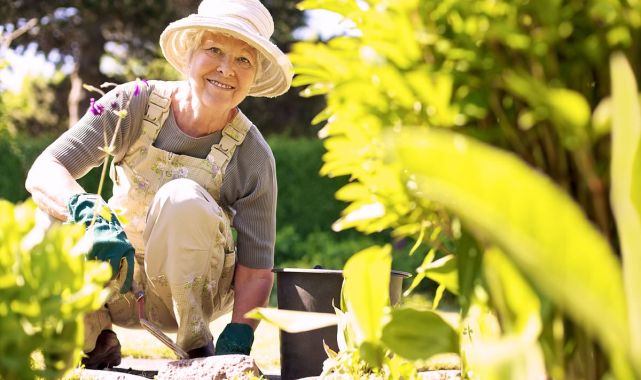Gardening keeps the brain healthy in old age, groundbreaking new study by Edinburgh University shows

This pastime involves maintaining the healthiest possible conditions for shrubs that are frequently decades old.
According to a recent study, gardening can support cognitive health into old age.
Psychologists at Edinburgh University conducted groundbreaking research wherein they observed hundreds of Scots and their lifestyles for almost a century.
Furthermore, research has shown that gardening can fend off the contemporary dementia epidemic up until the age of 80, independent of socioeconomic status or level of education.
The conclusion of the article, which was published in the Journal of Environmental Psychology, states that gardening may help preserve brain reserve even in later age due to its mentally stimulating qualities, which are yet mostly unknown.
“These findings point to a potentially fruitful new research avenue for comprehending the lifestyle variables that could facilitate successful cognitive aging.”
According to Alzheimer Scotland, the results are “encouraging.”
The executive director for brain health and innovation at the charity, Gillian Councill, stated: “People often don’t realize the wide range of benefits gardening can bring.”
Hand strength is increased by digging, planting, and pulling weeds; this has been proved to improve brain health.
Another important benefit of growing your own food is that it might help you eat a better diet.
Additionally, communal allotments are a terrific location to socialize and lessen feelings of loneliness and isolation because maintaining social connections is good for brain health.
The Lothian Birth Cohorts is a long-term brain function assessment for which the research team collected data.
At the age of eleven, children who were born in and around Edinburgh in 1921 took an IQ test to gauge their aptitude for math and thinking.
At the turn of the century, hundreds of them were tracked down and given the identical test when they were 79 years old.
They underwent regular evaluations of their mental health up until the age of 90 and provided information about their lifestyles.
Out of the 467 individuals surveyed, over 30% had never planted a garden in their life, while 44% continued to do so on a regular basis well into old age.
The findings revealed a pronounced divide.
The 280 people who occasionally or regularly gardened were on average more cognitively capable as seniors than they were at age eleven.
However, compared to when they were children, the 187 who had never gardened or only occasionally did so usually scored lower on the test.
When the brain deteriorates irreversibly to the point where it becomes difficult for it to focus, recall, or solve issues, it is said to have dementia.
Currently, it affects approximately 100,000 Scots and accounts for 13% of all fatalities.
Unhealthy lifestyle choices increase the chance of the condition, although getting enough sleep and stimulating the brain are thought to help ward it off.
“The relationship between gardening and healthy cognitive ageing has largely been overlooked,” stated Dr. Janie Corley, the study’s principal author.
“Completing gardening tasks, learning about plants, and general garden maintenance involve complex cognitive processes like memory and executive function,” the speaker continued.
“More gardening engagement may be directly associated with a lower risk of cognitive decline, consistent with the ‘use it or lose it’ framework of cognitive function.”
Denis Barrett, 76, works at his plot at the Budhill & Springboig Allotments in Glasgow’s east end for about thirty hours each week.
“I’m out in the fresh air after a stressful career,” stated the retired auto component sales executive. I eat well, sleep well, and feel fantastic because I’m more at ease.
However, I can understand why gardening also stimulates the brain. A strategy is essential, and you must carry it with you to your house. For next year, I already have seeds started.
“And every day, you pick up new knowledge.”
Nothing compares to the flavor of something that has just been plucked from the ground or a tree, he continued. It resembles what food once was.




